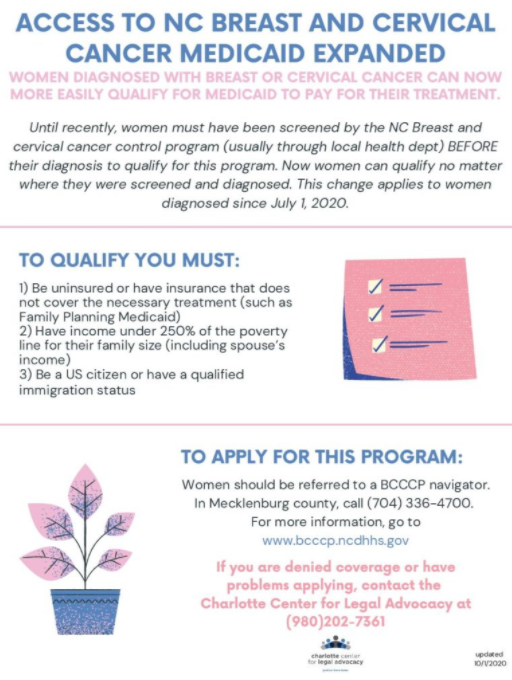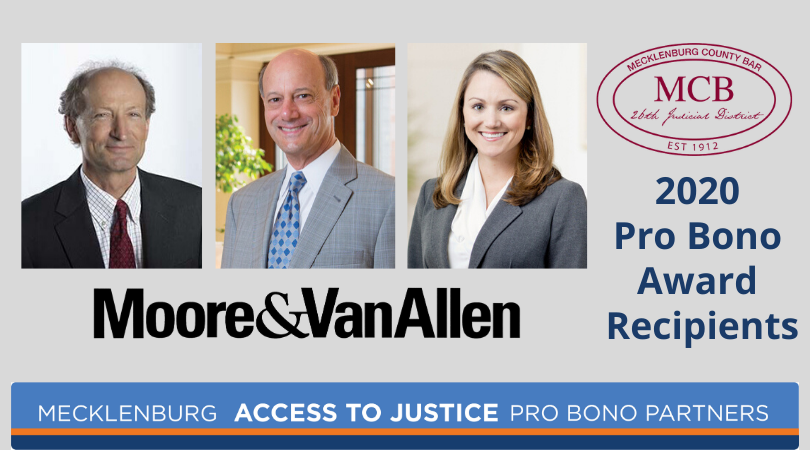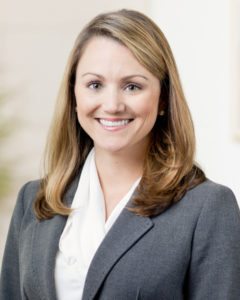Updated June 29, 2021, originally posted May 27, 2020
Home Preservation
Rent and Utility Assistance: Charlotte City Council recently approved an additional $8 million dollars of CARE’s Act funding to allow the expansion of the current Rent and Mortgage Assistance Program (RAMP Charlotte). This program includes rent and utility relief for tenants, long-term hotel guests, homeowners with mortgages, and hotel and property managers. Applications for this assistance will reopen on March 1st, 2021 at 9am. Going forward, applications will be open on the 1st through the 15th of every month
Through the Low Income Home Energy Assistance Program (LIHEAP), some families may be eligible for utility assistance based upon income. You may also automatically qualify if you or a family member participates in certain other benefit programs, such as the Supplemental Nutrition Assistance Program (SNAP), Supplemental Security Income (SSI), Temporary Assistance for Needy Families (TANF) or certain needs-tested Veterans benefits. Learn more and apply here.
Consumers with past due energy (gas or electric) bills may now seek financial assistance for both the past due amount and the full balance on any deferred payment plan through Crisis Assistance Ministry. Qualifying families can receive help with up to $600 toward their overdue utility bills by applying at Crisis Assistance Ministry, which is located at 500-A Spratt St and is open weekdays from 8:30 a.m. to 5:00 p.m. Detailed instructions for those seeking assistance are available at: www.crisisassistance.org/gethelp.
Duke Energy Electric Service Moratorium: Duke Energy announced a Winter moratorium from November 1st through March 31st on electric utility shut-offs. To qualify annually under the moratorium provision, a customer must establish ALL of the following:
- Someone in the customer’s household must be either handicapped, elderly (65 or older), or both.
- Customer cannot pay his/her account in full, nor installments to bring the account into balance within six months.
- The county Department of Social Services that administers the ENERGY CRISIS ASSISTANCE PROGRAM has certified that the household is eligible to receive such assistance, regardless of availability of funds. (DSS will present the customer with a “Certification Utilities Moratorium” to be mailed to Duke Energy, 9700 David Taylor Drive, Charlotte, NC 28262-2363, if eligibility is met.)
Learn more here.
General Evictions: (June 29, 2021) Eviction proceedings can and are taking place in Mecklenburg County. However, the federal government, through the Center for Disease Control (CDC), has extended its temporary halt on evictions through July 30, 2021 to prevent the further spread of COVID-19. The CDC has announced it will not extend the federal moratorium after July. Under the order, landlords and property owners are prohibited from evicting certain tenants impacted by COVID-19. Learn more about the order and qualifications here.
Evictions from hotels/motels: (April 3, 2020) N.C. Attorney General Josh Stein is protecting residents who live in hotels or motels as their primary residence from being evicted by reminding businesses that they need to follow the law by not allowing self-help remedies such as changing the locks in order to evict a tenant. Stein reminded businesses that trying to evict guests without a court order is a violation of N.C. landlord-tenant and consumer protection laws.
Foreclosure in N.C. Courts:
Things you should if you have an upcoming foreclosure hearing:
- If you have a Fannie Mae or Freddie Mac home loan, you should contact the attorney handling the foreclosure and tell them about the foreclosure protection through July 31, 2021. Plan to attend the hearing unless you are told it is being continued.
- If you have a FHA , HUD, or USDA home loan, you should contact the attorney handling the foreclosure and tell them about the foreclosure protection through July 31, 2021. Plan to attend the hearing unless you are told it is being continued.
- If you have requested a forbearance and get a hearing notice, contact the foreclosure attorney and let them know and tell the Court hearing officer that you have a forbearance.
- If you have health issues, contact the Court and the attorney handling the foreclosure right away about continuing the hearing. You cannot enter the Courthouse with any COVID-related symptoms.
- Wear a mask and check requirements of entering courthouse here: Mecklenburg Courthouse Modified Operations
- Contact Charlotte Center for Legal Advocacy’s Consumer Protection Program with questions or concerns at 704-376-1600.
What to Know about Mortgages and Mortgage Relief: (June 29, 2021)
Pay Your Mortgage if You Can Afford It
- Payments skipped will still become due. Depending upon your mortgage, you may not be happy with the repayment options offered; in some cases you may have to pay a large lump sum. Also, mortgage companies will make a mistake when processing repayment plans – these errors can be very difficult to fix.
If you Cannot Pay your Mortgage, there may be relief available
- Not all mortgages qualify for the same payment relief. See below.
- Requesting a Forbearance is better than letting your loan go into default. Once in default, other fees begin to accumulate on the account.
- Under federal law, the foreclosure process cannot start until you are more than 120 days past due. COVID forbearances/moratoriums may extend that time for certain mortgages.
“Federally-backed” mortgages have certain rights under the federal CARES Act
What Loans Are Federally Backed?
- FHA/HUD mortgages and HECM Reverse Mortgages
- For FHA loans, that may be indicated on your mortgage statement. Or, check the first page of your closing documents from when you bought the house (HUD-1 statement).
- VA (Veteran’s Administration) mortgages
- Fannie Mae & Freddie Mac backed mortgages
- Go to www.knowyouroptions.com/loanlookup to see if you have a Fannie Mae loan
- Go to www.freddiemac.com/corporate/ to see if you have a Freddie Mac loan
- USDA (Department of Agriculture)
- A list of federal loan agencies, their policies, and contact information is here
What rights do homeowners with “federally-backed” mortgages have?
- First, your lender or loan servicer may not foreclose on you until at least July 31, 2021 if you have a Fannie Mae or Freddie Mac mortgage and July 31, 2021 if you have a USDA, FHA or HUD Mortgage. The CARES Act and guidance from Fannie/Freddie and FHA prohibit mortgage companies from beginning a foreclosure, or from finalizing a foreclosure judgment or sale. This protection began on March 18, 2020. CFPB link
- Federally-backed mortgage companies must provide a Forbearance, if requested, due to financial hardship experienced during the COVID-19 emergency period. You should not have to provide additional documents other than the request affirming your hardship.
- Forbearance plans provide borrowers with payment relief for up to 12-months and suspend borrower late charges and penalties. It also suspends reporting to credit bureaus of past due payments of borrowers who are in a forbearance plan as a result of COVID-19 hardships..
- You are eligible even if your loan was delinquent before the COVID emergency. If you have experienced a hardship during the COVID emergency, the forbearance should be granted once requested.
- All forbearance payments will have to be paid back. Do not ask for one if you do not need one.
- A forbearance must be granted up to 180 days. Then a borrower can request another 180 days.
Additional assistance available to homeowners with “federally backed” mortgages:
- Through its Disaster Response Network, Fannie Mae also offers additional
help to homeowners with a Fannie Mae-owned mortgage,, including:
- A needs assessment and personalized recovery plan;
- Help requesting financial relief from insurance, servicers, and other sources; and
- Web resources and ongoing guidance from experienced disaster relief advisors
- Homeowners can find out if they have a Fannie Mae-owned mortgage and access to the Disaster Response Network here.
- Homeowners can contact Fannie Mae directly at 1-800-2FANNIE (1-800-232-6643). Get more information about your options.
What if I don’t have a federally-backed mortgage but still have a financial hardship?
- Contact your mortgage company as soon as possible. Many private mortgage companies are also granting forbearances. Try by phone, or on the online website if you cannot get through.
- Make sure you ask about and understand the repayment options at the end of the forbearance. Ask that it be sent to you in writing.
- Ask for assistance in writing about the repayment and loss mitigation options available to you if you do not have a federally-backed mortgage.
- Contact a free HUD-housing Counselor. Never pay up front for mortgage assistance. Make sure any housing counselor is HUD-certified here: HUD free counselors and info
What about property taxes and homeowner’s insurance?
- If your account is escrowed (meaning the taxes and insurance are paid through your mortgage payment, the mortgage company should continue to pay them during the forbearance.
- Borrowers who do not have an escrow account should continue to pay their property taxes, insurance, HOA fees, and other home-related items directly, if possible.
Problems with COVID Forbearances or other mortgage company issues
- Borrowers who believe they have been improperly denied a forbearance or have other problems with their servicer should submit a complaint to the Consumer Financial Protection Bureau using its complaint portal.
- Borrower’s whose mortgage companies are regulated by the North Carolina Commissioner of Banks can file a complaint here NCCOB complaint
Other Resources:
NCLC Coronavirus: What Borrowers Need to Know
Consumer Financial Protection Bureau: CFPB Covid Mortgage Info





